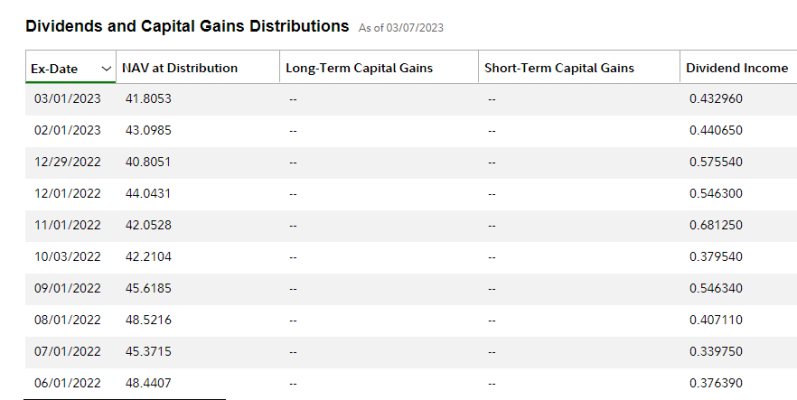Qs Laptop
Thinks s/he gets paid by the post
- Joined
- Mar 11, 2018
- Messages
- 3,554
I've got a lot of money on the sidelines right now. It's likely the Fed is about done with raising rates, might be another one or two small ones. I'm looking to get aggressive in my IRAs, so I'm looking at NASDAQ stocks. In my research I came across JEPQ, JP Morgan Nasdaq Equity Premium Income ETF.
This is an ETF with MSFT, AAPL, GOOG, AMZN, NVDA, and TSLA comprising more than 50% of the fund. Basically, where the Nasdaq goes, the stocks in this fund will be leading it.
The intriguing thing to me is that this fund pays a monthly dividend, last month it was 12% of the share price, annualized. So, if you think the NASDAQ is going to rebound, and in particular if you think these six stocks are going to do well in the ensuing months/years you would be in a good position if you were to buy this fund. However, if it pays a 10% to 12% (annualized) dividend every month? Outstanding, IMO.
Yes, I know the dividend payment has the effect of lowering the share price the next day it is paid out (usually.)
What am I missing?

This is an ETF with MSFT, AAPL, GOOG, AMZN, NVDA, and TSLA comprising more than 50% of the fund. Basically, where the Nasdaq goes, the stocks in this fund will be leading it.
The intriguing thing to me is that this fund pays a monthly dividend, last month it was 12% of the share price, annualized. So, if you think the NASDAQ is going to rebound, and in particular if you think these six stocks are going to do well in the ensuing months/years you would be in a good position if you were to buy this fund. However, if it pays a 10% to 12% (annualized) dividend every month? Outstanding, IMO.
Yes, I know the dividend payment has the effect of lowering the share price the next day it is paid out (usually.)
What am I missing?

